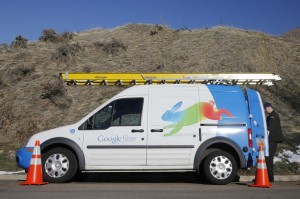Google Inc.’s high-speed Internet service is slowly rolling out around the U.S., but so far has avoided major metropolitan markets – like New York and Los Angeles – as well as most smaller cities. One Google Fiber executive says bureaucracy is what’s holding back the rollout.
“If you make it easy, we will come,” said Milo Medin, Google Fiber vice president, according to Wired. “If you make it hard, enjoy your Time Warner Cable.”
Cities that want to switch from the slower speed and higher cost of TWC and Comcast need to do more to get Google Fiber in their areas, Medin said. Local governments sticking to outdated approval processes – including ones that require the use of fax machines and outdated maps – are the top reasons why Google Fiber, AT&T GigaPower and other ultra-high-speed broadband service providers avoid rolling out to new areas.
While regulation and the approval process may be part of the problem, analysts from Morgan Stanley say Google is holding out because the process is expensive, and investors are concerned about the search giant’s spending. Medin said that areas with low population density were uneconomical for Internet service providers (ISPs) to enter, and local telephone companies also were holding out on allowing them access to the poles necessary for a rollout.








